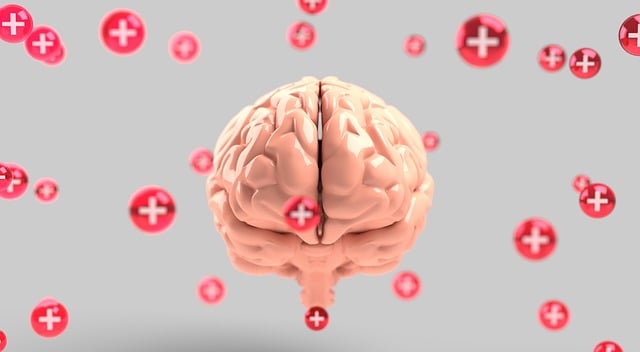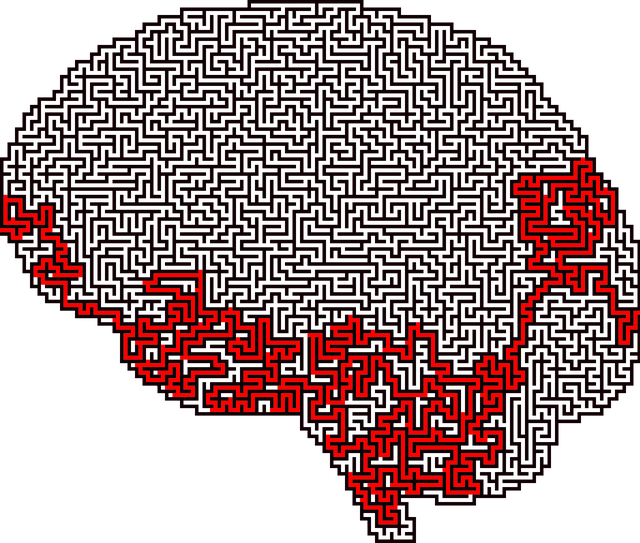Greenwood Village Gender Identity Therapy leads in crisis intervention through specialized training for teams, focusing on tailored de-escalation and mental health support for individuals with gender identity issues. Their program combines evidence-based practices, community engagement, and holistic learning to build resilience, improve self-esteem, and advocate for better mental health policies. Post-training, ongoing support and structured debriefings ensure professionals can effectively apply their skills in diverse settings, benefiting both clients and the community at large.
“Crisis intervention teams play a vital role in supporting individuals facing mental health crises. This article explores comprehensive training programs designed to equip professionals with the skills to navigate complex situations effectively. From understanding team dynamics and roles, such as those seen in Greenwood Village’s Gender Identity Therapy approach, to identifying key training components and ensuring ongoing support post-training, we delve into strategies for enhancing crisis response capabilities.”
- Understanding Crisis Intervention Teams: Roles and Responsibilities
- Greenwood Village Gender Identity Therapy: A Specialized Approach
- Essential Components of Effective Crisis Intervention Training Programs
- Implementation and Continuous Support for Post-Training Success
Understanding Crisis Intervention Teams: Roles and Responsibilities

Crisis Intervention Teams (CITs) are specialized groups within healthcare settings designed to swiftly respond to individuals in mental health crises. These teams typically consist of a multidisciplinary group of professionals, including therapists, social workers, and sometimes law enforcement officers. The primary role of a CIT is to provide immediate support and de-escalation strategies to individuals experiencing severe emotional distress, suicidal ideation, or other high-risk behaviors. By integrating diverse skill sets, CITs offer comprehensive care tailored to the unique needs of each crisis situation.
At Greenwood Village Gender Identity Therapy, we recognize the vital role CITs play in enhancing mental health services. Our team members undergo rigorous training in risk management planning for mental health professionals, ensuring they are equipped to handle a range of crises effectively. Beyond immediate intervention, CITs contribute to Depression Prevention efforts by offering early identification and support, potentially preventing more severe episodes. Through ongoing Mental Health Policy Analysis and Advocacy, we strive to improve systemic responses to crisis situations, benefiting not only our clients but the broader mental health community.
Greenwood Village Gender Identity Therapy: A Specialized Approach

Greenwood Village Gender Identity Therapy stands out as a specialized approach within crisis intervention team training programs. This innovative program is tailored to address the unique challenges faced by individuals with gender identity issues, offering a supportive environment for self-esteem improvement and mental health recovery. By integrating evidence-based practices and community engagement, Greenwood Village aims to build resilience among its participants, empowering them to navigate societal complexities with enhanced coping mechanisms.
The program’s focus on Gender Identity Therapy goes beyond traditional crisis intervention by incorporating elements of advocacy and policy analysis. Through workshops and group discussions, participants gain insights into mental health policies, fostering an understanding of their rights and the resources available to support their well-being. This holistic approach not only equips individuals with practical skills for managing crises but also promotes a sense of community and empowerment, crucial factors in sustaining mental health and overall resilience.
Essential Components of Effective Crisis Intervention Training Programs

Effective crisis intervention team training programs are multifaceted and integral to addressing mental health crises in diverse settings. At Greenwood Village Gender Identity Therapy, we recognize that a well-rounded approach is key to fostering competent and compassionate crisis responders. The essential components include robust training in risk assessment, de-escalation techniques, and trauma-informed care. These skills empower individuals to safely manage high-stress situations while promoting empathy building strategies and coping skills development.
Beyond these foundational elements, successful programs integrate self-care practices and encourage ongoing supervision. By incorporating regular debriefings and peer support, crisis intervention teams can navigate the emotional demands of their work effectively. This holistic approach ensures that responders not only enhance their professional capabilities but also maintain well-being in the face of challenging scenarios, ultimately benefiting both the community and the individuals they serve.
Implementation and Continuous Support for Post-Training Success

Post-training success is paramount to ensuring that crisis intervention team members can effectively utilize their newly acquired skills and knowledge in real-world scenarios. Implementation of these programs should involve a structured approach, where ongoing support and resources are readily available to teams post-training. This includes regular debriefing sessions to process and discuss challenging cases, fostering an environment of continuous learning and improvement.
At Greenwood Village Gender Identity Therapy, we understand the value of resilience building and emotional regulation in crisis intervention. By integrating Mind Over Matter principles into our training programs, participants gain valuable tools for managing stress and maintaining composure during critical incidents. This holistic approach not only enhances their ability to support individuals in distress but also ensures long-term applicability of learned skills beyond the initial training period.
Crisis intervention team (CIT) training programs, such as those offered by specialized centers like Greenwood Village Gender Identity Therapy, play a pivotal role in equipping professionals with the skills to navigate and de-escalate critical situations. By focusing on understanding roles, implementing effective training components, and providing continuous support post-training, these programs ensure that teams are prepared to handle crises responsibly and compassionately. This comprehensive approach not only enhances safety but also fosters healthier outcomes for individuals facing mental health challenges.














